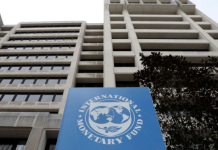ISLAMABAD: Pakistan’s foreign debt and liabilities have increased many times and reached $126 billion. In the given scenario, there‘s an urgent need to introduce strong reforms in the tax collection system to tackle this serious problem, said Assistant Professor Hammad Manzoor of Fatima Jinnah University, Rawalpindi while talking to WealthPK.
Hammad said the country’s major issue was a weak tax collection system that gave ways to many wealthy businessmen to dodge.
He said lower-than-targeted tax collection, steep currency devaluation of around 50%, higher interest rates, higher expenditures along with losses incurred by the state-owned companies (SOCs) and debt mismanagement were the main reasons for a surge in the public debt.
He said the total external debt and liabilities had jumped to a record high of $126 billion which was a very alarming situation for Pakistan. External public debt, which is the direct responsibility of the federal government, increased from $75.3 billion in June 2018 to $99.8 billion in 2022. The direct consequence of the growing debt is a huge increase in the cost of debt servicing.
He further said the gross public debt reached Rs44.5 trillion by the end of March 2022 according to a report of the State Bank of Pakistan (SBP). After a staff level agreement with the IMF, Pakistan has planned to reach some other financing bodies such as the World bank, Asian Development Bank and Islamic Development Bank for a loan of about $10 billion.
Hammad said Minister for Finance Miftah Ismail recently said a staff level agreement had been reached with the IMF and the Fund board would meet after the second week of August 2022 to approve Pakistan’s request for release of a tranche of $1.17 billion.
He said circular debt touching Rs850 billion with the electricity billing totalling to Rs1,600 billion had raised many an eyebrow and set the alarm bells ringing among the policymakers.
“The State Bank’s latest report shows that the debt burden has increased both in absolute terms and in terms of the size of economy. Pakistan’s economic viability requires serious long-term reforms,” he added.
Hammad said Pakistan was in a challenging economic situation, as it was totally dependent on foreign loans and grants from the UAE, Saudi Arabia, Turkey, China, IMF and other financing bodies. The resultant economic overheating led to large fiscal and external deficits in FY22, elevating inflation and eroding the reserve buffers, he added.
“To stabilize economy and to bring a strict policy action in line, the government should focus on spending and borrowing. The budget aims to reduce the government’s large borrowing needs by targeting an underlying primary surplus of 0.4 percent of GDP. Tax should be collected from the higher income tax payers. There is a need to protect development spending and create fiscal spending”, he added.
-INP




